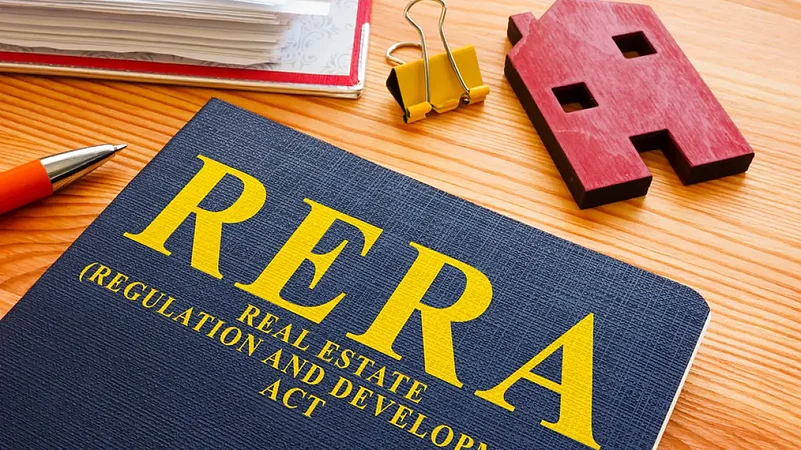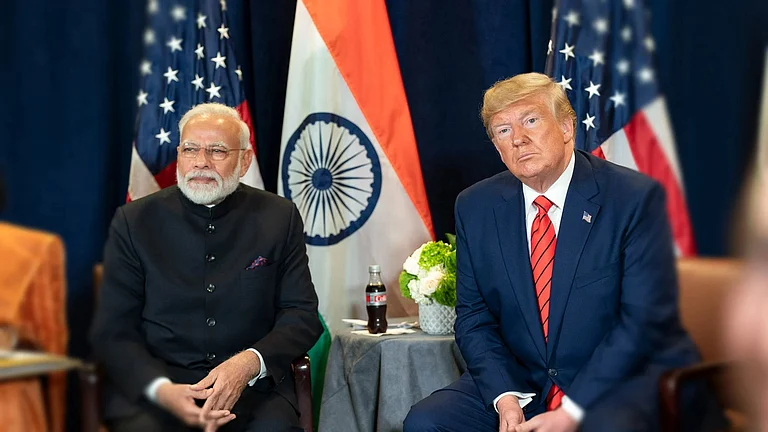After years of being embroiled in litigation related to the disputed Kalypso Court, a high-rise in Noida Sector 128, the belligerent sides—its developer and buyers—recently wrapped up the project together, emerging as an example for several such conflicts across India.
The credit for its completion majorly goes to the Uttar Pradesh Real Estate Regulatory Authority (UP RERA) for devising a one-of-its-kind model of mediation and conciliation which brought the two warring parties to the negotiation table and resolved a decade-long deadlock together in about two years.
Launched in 2008 by Jaiprakash Associates, the flagship company of conglomerate Jaypee Group, Kalypso Court had started off as a project with 15 towers. Seven were completed and handed over to the buyers before the Real Estate (Regulation and Development) Act was implemented in 2016. The remaining eight were left incomplete.
Once the Act came into effect and made it mandatory for all the developers to register their incomplete projects, Jaiprakash Associates got those eight towers registered with the UP RERA. The developer, however, could complete only four towers by the time the registration period of the towers lapsed on July 1, 2018.
The remaining four towers were supposed to house 304 flats of which 274 units had already found buyers by then and were left in the lurch.
To deal with a situation of this kind, Section 8 of the RERA Act says that if a developer fails to complete the project within the specified time, a buyers’ association can be formed which can then take over and get it constructed from whoever they want, not necessarily the same builder.
In Kalypso Court’s case, out of the 274 buyers, 152 took matters into their own hands and came forward to form an association called the Progressive Welfare Society.
However, they had neither the expertise to hire contractors to get the incomplete work done nor the finances to pay the contractors. The total cost to complete the remaining work stood tall at Rs 134.15 crore and the amount that was due to the 274 buyers was Rs 90.9 crore. The unsold 30 units could have fetched around Rs 25.06 crore. So, the project had a net negative cash flow between Rs 18 crore and Rs 19 crore.
That is when the association approached UP RERA in 2019 and acting on the case, UP RERA proceeded to devise a plan to complete the balance development work of the project under Section 8 of RERA. It chose the consensus route wherein a mechanism was drawn up in 2020 under which the project was proposed to be completed with the cooperative effort of the builder and the buyers’ association.
A project monitoring committee, consisting of representatives from the buyers’ association, the builder and some other members, was set up to overlook the process. This committee was headed by Balvinder Kumar, a member of the UP RERA back then.
The biggest problem in the way was the buyers’ lack of trust in the builder, says R.D. Paliwal, a senior officer of the UP RERA. “They were not ready to pay the remaining due amount because they thought it might go down the drain like their previous payments,” the official adds.
To reinstate that trust, the builder took the lead and deposited Rs 45 crore in a separate escrow account in installments. After that, the buyers agreed to pay timely installments to maintain the cash flow required to complete the project.
“Despite challenges due to Covid-19, the four towers got ready in about two years’ time and two out of them got completion (certificates) from the Noida Authority just recently,” says Paliwal.
Today, Jayesh Patel and Arvind T Jena, buyers and officer-bearers of the association representing it, heap praises on the builder, saying that the credit goes to all the parties who moved with good intent. “Many real estate projects in the country are facing a similar situation that we faced but we came out of it successfully and this has set an example for many others,” says Patel.
Besides issues of trust and finance, the project also faced legal challenges. The RERA Act does not categorically state that the buyers have to get the project completed by the same builder.
Paliwal says that they overcame this hurdle after coming across an older Supreme Court judgment which authorised them to involve the same builder to complete the project.
In the real estate circle, it has become popular as the “Kalypso model”, he says. “We are making a similar approach in about a dozen other cases,” Paliwal adds.
Venket Rao, legal advisor of the UP RERA and the head of Intygrat Law Offices, says that it was a great experience to advise the concerned parties on the entire effort.
“I think the Kalypso Court order in 2020, based on which the project got completed, has become a precedent for the rest of the projects. It was a novel effort to bring out the reconciliatory and joint effort of the builder and the association under the stewardship of the project management committee of the Authority (UP RERA),” says Rao.
He says that such actions under Section 8 of the RERA repose a lot of faith in the regulator which has been taking a lot of flak for years of the mess created by others.































